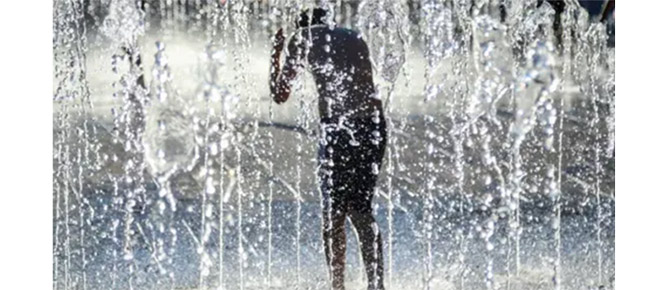Bengaluru, Sep 26: Twenty organisations from diverse sectors were on Monday declared winners of the first edition of Infy Maker Awards for "making" in India by the software major's Infosys Foundation.

"The Infy Maker Awards are testimony to our commitment to encourage 'making' in India and acknowledging those with innovative solutions for leveraging technology to make things easier," said the Foundation in a statement here.
Each winner will be given an award of Rs 5 lakh, a trophy and a certificate.
A panel of judges representing technology, academia and the business community selected the winners from 280 entries.
The jury, comprising Biocon Chairperson Kiran Mazumder Shaw, Author Rama Bijapurkar, Aarin Capital Partners' Chairman Mohandas Pai, and Infosys' Chief Operating Officer Pravin Rao evaluated the entries that were relevant to real-world problems and used technology in an innovative way.
"The awards recognise some of the best minds that unleash the power of creativity and imagination of the next-generation of thinkers. We believe the awards will ignite the spirit of 'making' in India and celebrate excellence in innovation," Rao said on the occasion.
As the awards aim to inculcate and foster an ecosystem of makers, the IT major intends to empower and reward them across communities and organisations.
The awards also enable the creation of an ecosystem of innovation through "making" that will help India contribute to the larger global community of inventors and entrepreneurs.
The winners are from various categories, including health, energy, education, sound and music, social change solutions, robotics, art and design, artificial intelligence and electronics.
The Foundation initially launched the awards in support of the "Nation of Makers" initiative of the US President Barack Obama in June 2015.
Among the winners under the social change category are Sourabh Alagundagi, Sandeep Patil and Shreya Gudasalamani of AssitYou, a communicative glove solution for hearing impaired people to communicate.
Sanjeev Arjun Gaur for regenerative brakes for cycle rickshaw to make pedalling easier; Vuppari Kalyani for multi-functional elevator to move in a vertical and horizontal direction; Ilampothigai K. Vignesh, V. Anand Gopi and Ibrahim Ahmed Hassan Awad for a device to ensure safety and communication amongst linemen; Aravind S. Balaji and G. Aravind for maritime border warning system for fishermen.
Selfie innovators Arun Kumar and S. Vishnu Priya for public over-dump limiter sensor to track garbage levels; Chetan Prasad for invisible bus bay to ease parking in overcrowded areas; Aakash Goel for "Shour", the smarter way to shower by conserving water; and K.N. Panda, Smritiparna Satpathy and Jayant Pradhan for TycheeJune, a technology to self-track and cure punctures.
Under health category, Deepika Giri, V. Krishna Kumar, Kavitha Sowndararajan and L. Jamuna for heartbeat monitoring system using light-fidelity (Li-Fi); Shantanu Pathak and Aditya Kulkarni for Clinic-in-box for pregnant rural women, who do not have access to healthcare facilities; C. Cornelius Durai, T. David Thevaram and S. Sairam for Aarduous therapist for stroke patients for physiotherapy needs.
Abhinav Shekhar Vashistha for a solution to enable autistic people communicate; Lovi Raj Gupta, Kunal Panchal, Yerra Prasanthi, Satish Reddy and Vishakha Choudhary for Sitby, a posture proctor to alert wrong posture at work; and Veerpal Sharma, Divyanshu Varshney and Roopam Sharma for Dr Fizio to ensure that physiotherapy is on the right track.
In the energy category, Krishnanand Venkatasubramanian and S. Senthilvel were chosen for their low-cost wind turbine.
In the artificial intelligence category, Kannabiran S. Gokul, Srinath V., and Boobalan B., for a human safety system for two-wheeler vehicles; and in the electronics category, Nagarjuna Paturi for weather proof liquid level switch vehicles and indicator to prevent water overflow.
"The Infy Maker Awards programme celebrates the spirit of making that is innate to all of us. The awards seek to recognise and reward the creativity of makers whose ideas and solutions have the potential to address the challenges facing the world, said the Foundation's US arm Chairperson Vandana Sikka on the occasion.








Comments
Add new comment